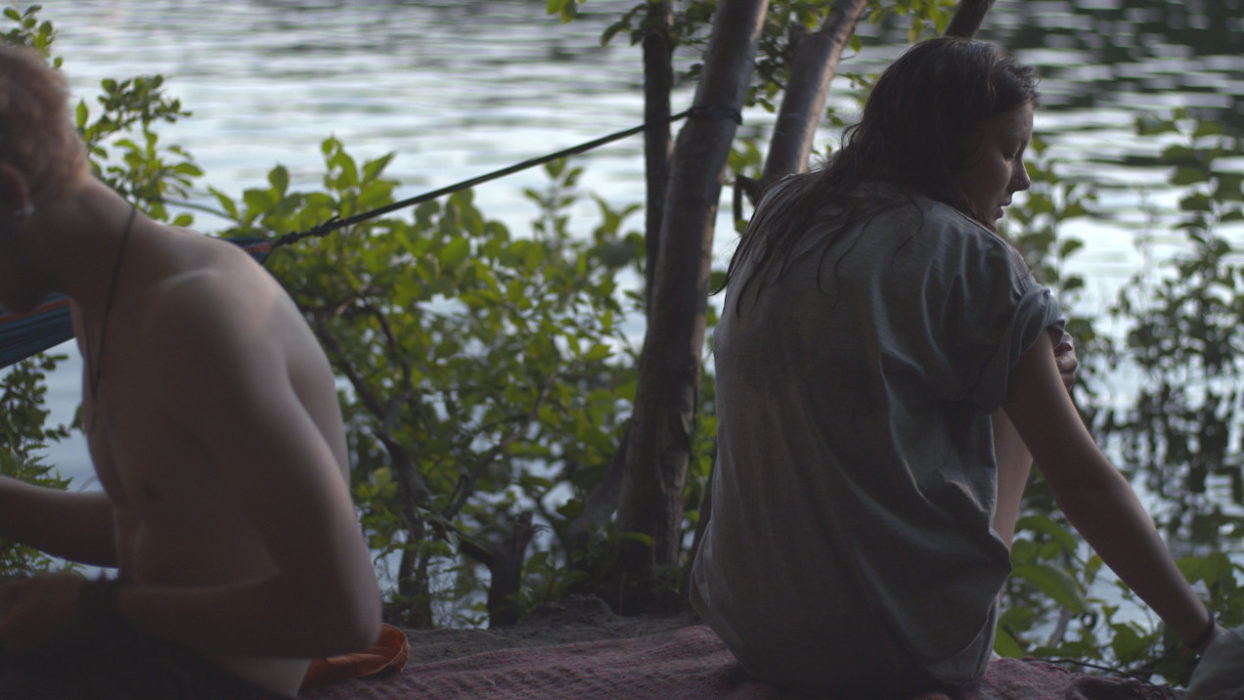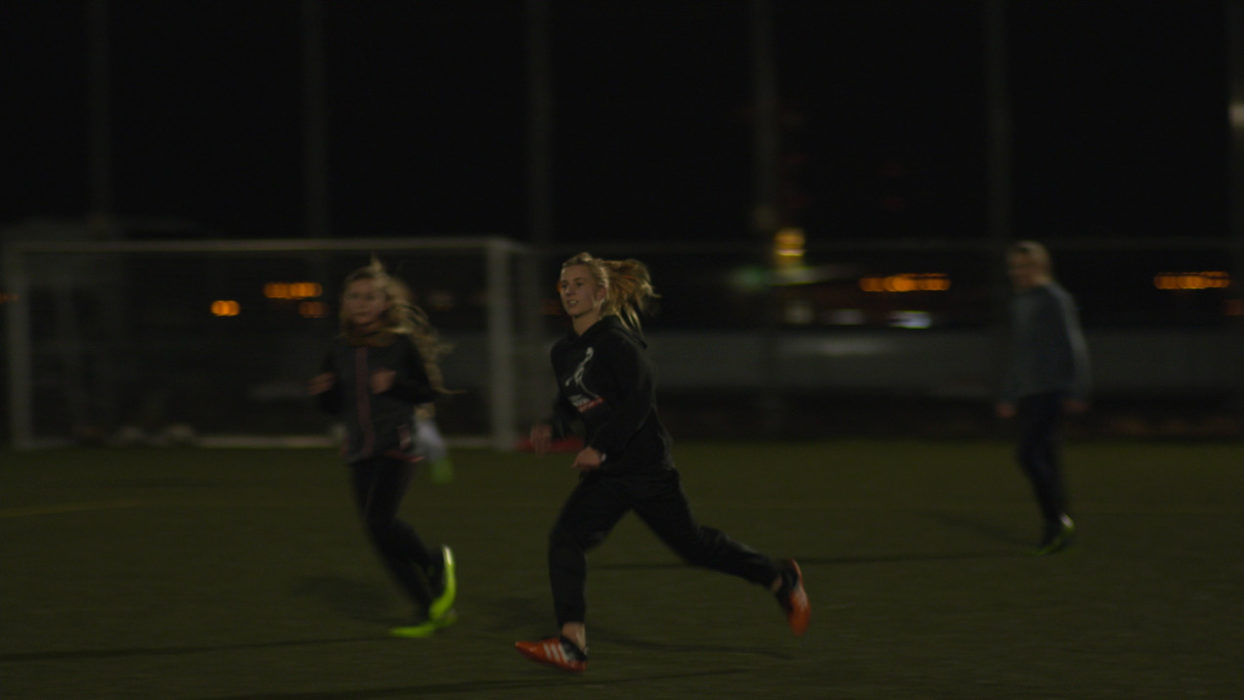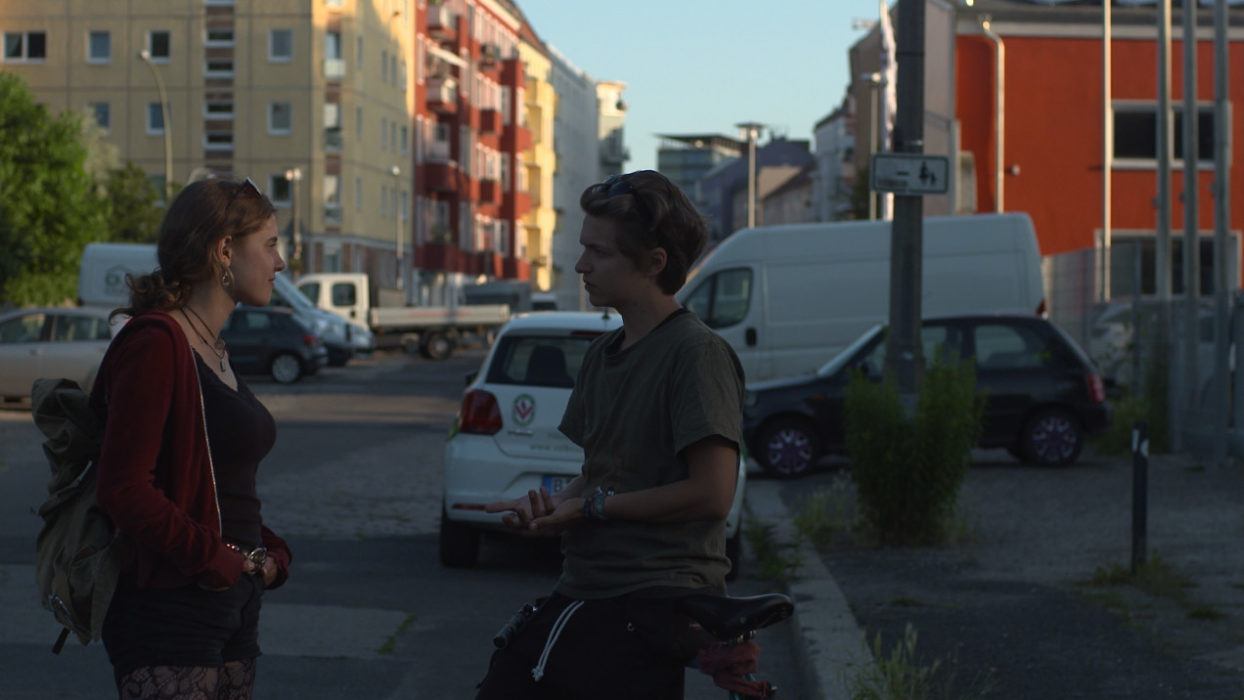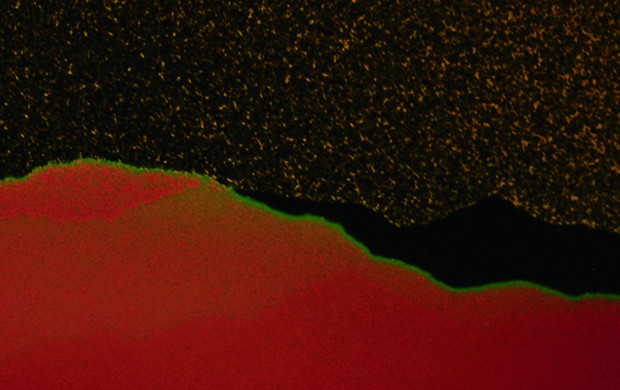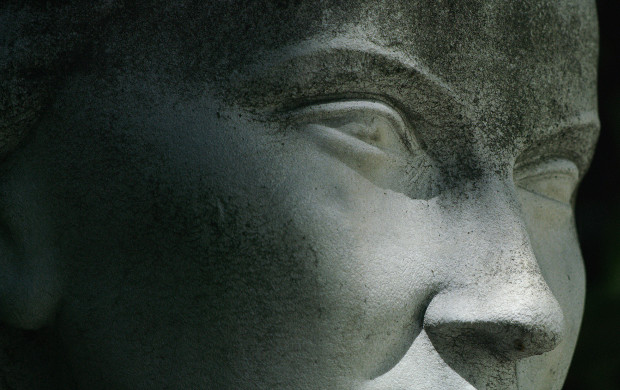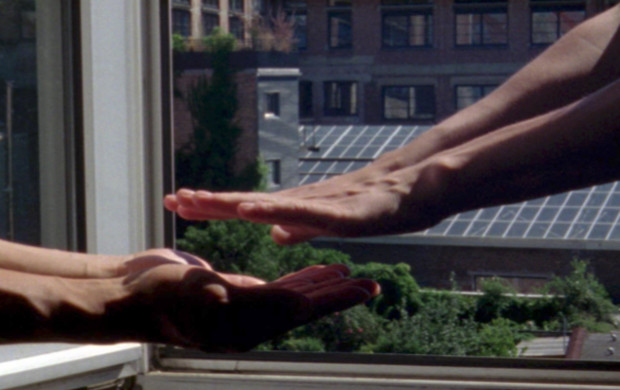FREIZEIT or: the opposite of doing nothing
FREIZEIT ODER: DAS GEGENTEIL VON NICHTSTUN
- 2021
- Germany
- 71 min
Berlin. Summer 2018. They are 17 years old. The diverse neighborhood they grew up in is one big construction site, where people have to give way to the dreams of others. They drift through the city and wonder how anyone will be able to live in this city in the future. They are always in discussion: about everyday sexism, the individual’s responsibility for the system in which we live. What is happening and what should happen is in contradiction, but they keep faith.
Caroline Pitzen’s first feature-length film opens with a prologue on the set of the Austrian talk show Club2: the queer author Ronald M. Schernikau is asked a question about a sentence in his novel Kleinstadtnovelle, which he wrote at the age of 18 while still at high school and thirteen years before he died from AIDS-related causes. According to Schernikau, not only are the spaces of political exchange accessible to youth not listened to, but this deafness of the elites can be seen at all stages of democracy; everything leads us to think that there is no alternative, during our free time, but to do nothing – a variant of well-known economic propaganda. Pitzen, on the contrary, defends the idea that revolutionary politics can exist only in leisure activities. FREIZEIT or: the opposite of doing nothing follows five youngsters in today’s Berlin in their free time given over to casual discussions, reading books and articles (Theobald Tiger, Marx, Engels…), watching pre-war communist films (Kuhle Wampe, 1930, by Slatan Dudow, written by Bertolt Brecht), and collectively inventing modes of political action in a formerly East-German neighbourhood, now in the grips of a pernicious gentrification. This is the material – dense yet airy, positive yet worried – for a film that in many respects echoes People on Sunday (1930) by Siodmak, Ulmer and Wilder, and which works on reality with the perseverance of a fictional process, whereby non-actors become genuine political subjects.
Antoine Thirion
- Production : OKNO (Caroline Pitzen, Ljupcho Temelkovski, Philipp Fröhlich)
- Cinematography : Markus Koob
- Sound : Philipp Fröhlich, SHEN Sum-Sum, Christian Obermaier, Jochen Jezussek
- Editing : Caroline Pitzen
